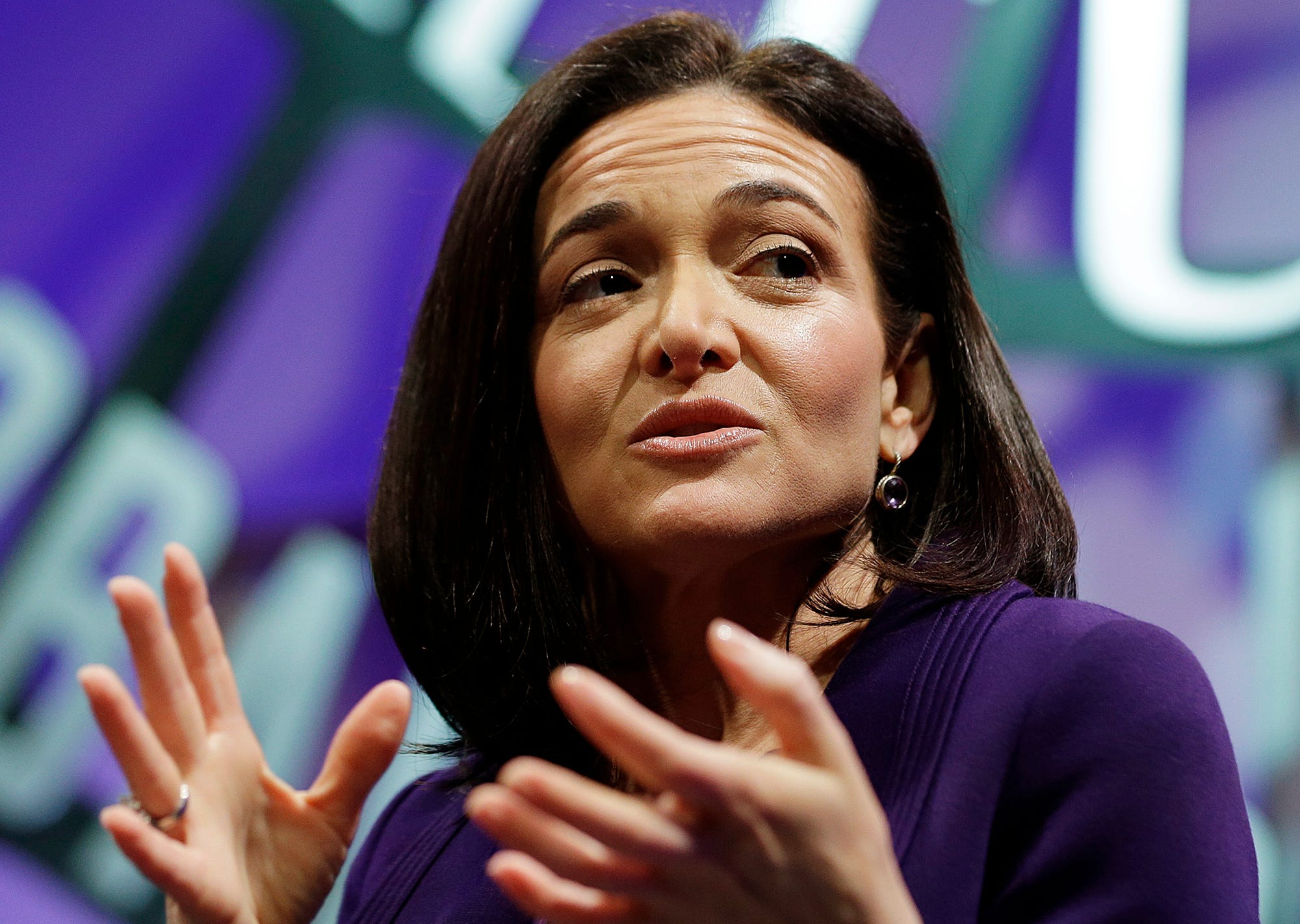
AP Photo/Eric Risberg
- Insider spoke with Facebook COO Sheryl Sandberg about diversity and inclusion in corporate America.
- Sandberg created an interactive program for managers to talk about unconscious bias.
- She said not enough CEOs are talking about the "she-session."
- Visit the Business section of Insider for more stories.
It's one thing to hear your CEO mention the topic of unconscious bias in a town hall. It's another thing to see your direct manager call out your colleague's microaggression in a meeting.
Real change takes brave leaders engaging in tough conversations. And Sheryl Sandberg, COO of Facebook and founder of the gender equity nonprofit LeanIn, wants to make those uncomfortable conversations more common.
"People want to talk about bias, but they're afraid to talk about what the actual biases are. They're afraid to say things out loud," she told Insider.
To help managers work through (not dance around) tough diversity and inclusion topics, Sandberg's nonprofit created an interactive program called "50 Ways to Fight Bias." Prompts from the interactive highlight the biases women, especially women of color, experience in the workplace.
Leaders from Amazon, Airbnb, PayPal, and Walmart have already participated in the program. Over 1,000 other companies are signed up.
Not talking about bias has damaging consequences. Among several other factors, like a lack of sponsorship or a culture of discrimination, bias particularly keeps women of color from reaching the highest rungs of the corporate ladder.
For every 100 men promoted into a managerial role between 2019 and 2020, only 85 women were promoted, according to research McKinsey and LeanIn released last year. That gap was even larger for women of color. Only 58 Black women and 71 Latinas were promoted.
For International Women's Day, Insider spoke with Sandberg about unconscious bias, the mounting number of women exiting the workforce to care for their kids, and her thoughts on how America's racial reckoning could lead to change.
The following interview has been lightly edited for length and clarity.
You've been thinking a lot about unconscious bias. You recently released an interactive program that managers at Walmart, Amazon, PayPal, and other companies have used on the topic. How are leaders doing right now when it comes to tackling unconscious bias?
It's really about recognizing that we all need to do better.
We need to have conversations about women being interrupted, about Black women being called 'bossy,' about Latina women being called 'emotional,' these are things that people need to understand are still happening, and we need this to change. And the only way to have these things change is to have these conversations.
It's about leaders and employees getting uncomfortable.
Yes. We need to talk about it in the specific. Saying "There's bias," doesn't do it. That's not enough. We have to be specific, even though that's where the hard conversations come up.
It can be hard to admit that these are the biases because we don't want to say that, but pretending they don't exist unfortunately does not make it go away. And I think that's the point of the "50 Ways to Fight Bias" program.
We're trying to bring unconscious bias to life.
Another topic I wanted to talk with you about is the staggering number of women leaving the workforce right now, the "she-session." Are enough CEOs talking about it? Taking action?
I don't think enough leaders are talking about it. I really don't. My foundation did a survey in October that showed that 25% of women in the workforce were thinking about leaving.
You saw it coming.
I don't think it's that we saw it coming, it's more that we asked women what they were thinking, and we listened.
Women were working a double shift before the coronavirus, but once the pandemic hit, there was a double-double shift. It's completely unsustainable for women.
Crises are moments of reconciliation for us, right? We either have to make things better or we have to acknowledge and accept that they're going to be worse. Women have done the majority of household work and childcare forever, that's not new, right? The question now is, are we going to accept that? And leave it like that? Or are we going to fight and change it?
What can business leaders do to address the "she-session"?
There's so much CEOs have to do to address this. This isn't a problem women can solve on their own. This is a problem we have to work together to solve.
For one, make sure your corporate policies are right. For example, at Facebook, we canceled performance reviews. Because you can't tell people, 'Hey I know you've got a lot to do amid this pandemic' and hold them to the same standards. We gave everyone an additional 10 weeks of COVID leave, additional time off for anything related to the coronavirus: taking care of yourself, taking care of your child, taking care of your child doing long-distance work, we are giving you that option. And I think more companies need to change those types of things.
Then there's bias, you have to have a program that talks about and recognizes bias. You have to be very thoughtful about recruiting and retaining diversity.
There are so many things leaders need to do.
You talked about not wasting a crisis. The pandemic and the racial reckoning underscored the need for corporate America to take diversity and inclusion seriously. Do you think the efforts companies are taking now will continue? Will there be lasting change?
I want to believe that it's going to be different this time. I think there are some real signs of hope that people are taking this much more seriously. But can I tell you I know for sure? Of course not, but I'm really hopeful.
Let me ask you, what do you think? You must have an interesting vantage point, as someone who writes about this.
Ha! Well, sure. I personally think we're at a turning point where consumers, investors, employees - they want accountability. They want their leaders to make good on the promises they set out in the wake of George Floyd's murder. So yes, I think there will be more pressure going forward, which could bring about change.
That makes me hopeful. You know, I really, really hope that we're not going to waste this crisis.
Dit artikel is oorspronkelijk verschenen op z24.nl
